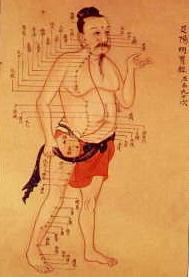
Acupuncture is a complete medical system used to diagnose, prevent and treat illness, and improve well-being. It is effective for physical, psychological and emotional problems. Acupuncture originated in China more than 3,000 years ago and, due to its proven effectiveness, has now been embraced throughout the world.

The earliest written record of acupuncture is the Chinese text Shiji (Records of the Grand Historian), with elaboration of its history in the second century BCE medical text Huangdi Neijing (Yellow Emperor's Inner Canon). The first European text on acupuncture was written by Willen ten Rhijne, a Dutch physician who studied the practice for two years in Japan.
The UCLA Acupuncture Pain Clinic was formed in 1972, created and staffed by the NAA in conjunction with the University of California at Los Angeles. This was the first legal clinic in a medical school setting in the US. The Internal Revenue Service allowed acupuncture to be deducted as a medical expense, beginning in 1973.
Patients have a chance to tell the practitioner about their problem, give their history, and have their questions answered. The acupuncturist may ask additional questions, use diagnostic techniques of traditional Chinese medicine or western medicine to arrive at a diagnosis.
The practitioner will then make recommendations to you about treatment. A typical treatment may include any combination of acupuncture, moxibustion or Chinese medical massage, as well as education on diet & self-care.
The upper third of these needles is wound with a thicker bronze wire, to stiffen the needle and provide fingertip grip for the acupuncturist. The needle is effectively a fine instrument, and when manipulated by an experienced practitioner creates only a minimal "tingle" sensation.
Warming an acupuncture point, typically by moxibustion (the burning of a combination of herbs, primarily mugwort) is a different treatment than acupuncture itself and is often, but not exclusively, used as a supplemental treatment.
Acupuncture will generally provide benefits, but a number of factors influence whether you will get better and how long it will take. It depends on your current state of health. In general, elderly patients and patients who have chronic conditions will take longer to improve. Your recovery will also depend on how often you receive treatment and how actively you participate in your self-care.